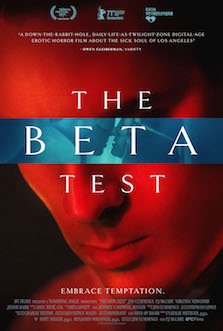Direction: Radu Jude
Country: Romania
Romanian writer-director Radu Jude (Aferim!, 2015) fabricates a subversive parody adapted to the pandemic era and peppered with explicit sex. Following an atypical narrative structure, the film comprises three distinct parts with situations that are not particularly comic but rather wrapped in furious criticism and objection of the country’s social and political states.
A tepid first part, pelted with unattractive images of Bucharest, discloses that Emi (Katia Pascariu), a dedicated History teacher, has her job in jeopardy due to a sex tape leaked on the Internet after her computer was taken to a repair shop. Part two puts the main story on halt, presenting a sequence of ironic sketches that doesn’t spare the country with observations and considerations about politics, culture, family, sexual assault, and even global warming and social distancing.
Things heat up a bit during the third chapter, when the protagonist argues back fiercely in the presence of wrathful parents who demand her dismissal. This teacher-parents interaction is deliberately silly, navigating through a zillion of topics such as personal privacy, kids accessing adult websites, the definition of fellatio, bribery at school, conservative hypocrisy, conspiracy theories about the Holocaust, homophobia, and many more. In her turbulent defense, Emi even recites one of Eminescu’s erotic poems.
When the film was feeling already too long, we are presented with three possible endings, the last of which offering deplorable derision.
Unapologetically, Jude gives the middle finger to the Romanian administration and hypocrite society, sending a wave of mutilation to engulf the crooked system they have created. But on the other hand, the way he found to get attention to his cause was with an excessive anarchy that brings nothing smart in it. Purposely beyond the good taste, this is one of those cases where the satiric catharsis is too severe to be likable.








































